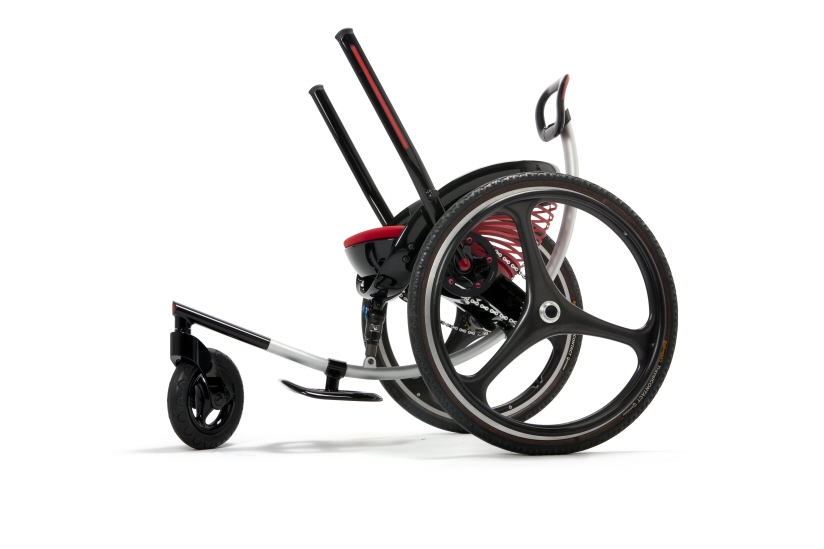Wheelchairs bring the gift of mobility to millions of disabled individuals, until rough terrain gets in the way. What if we could give people even more flexibility regardless of nature’s conditions? Continuum collaborated with MIT’s Mobility Lab to envision the next generation of the Leveraged Freedom Chair (LFC) a high-performance wheelchair designed to help the disabled in developing countries. The newest version, called the LFC Sport, is now funding the original LFC prototype.
The LFC is a wheelchair designed to move beyond pavement. For the disabled person living in a developing country, traditional push-rim wheelchairs fall short because they limit the user to flatter, smoother ground. Unlike traditional wheelchairs, the LFC uses the chain and sprocket drive train of a standard bicycle in conjunction with two extended push levers to allow the user to move 34% faster on flat ground and get 53% higher torque on rough terrain. Most importantly, it delivers a newfound sense of emotional independence for its users.
In developing countries, wheelchair-accessible buildings and roads are rare and there are no government programs like the ADA protecting wheelchair-bound individuals. The cost and infrastructure for these programs is not realistic. The LFC is a viable solution for these markets because it provides an option that is more efficient and cost effective at only $100 per wheelchair compared to conventional wheelchairs which cost anywhere between $1,000 and $2,500. But spending $100 to buy a wheelchair is still unattainable to people who are living on less than $1 per day. How do you get these chairs to the people who need them if they can’t afford them?
Build a system to subsidize the cost. Continuum helped the LFC designers envision the next generation of the Leveraged Freedom Chair: The LFC Sport. This high-performance version will be sold to western markets. A business model was created where if you buy one high-performance recreational wheelcha

